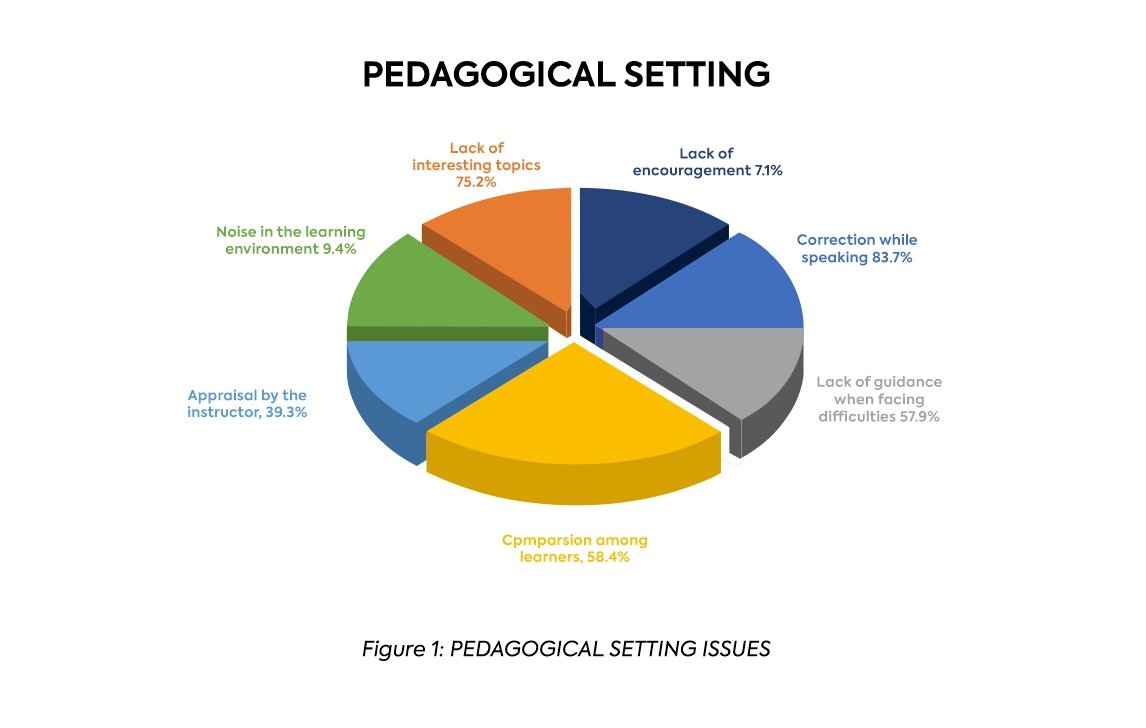Can Learning English Change Your Life?

Learning English can open up a world of opportunities and significantly change your life in many positive ways. As the most widely spoken language globally, with over 1.5 billion speakers worldwide, English has become the international language of business, science, technology, and more (British Council, 2022).
The reach of English is truly remarkable. It's the official language in 54 countries and is spoken at a useful level by some 1.75 billion people - that's a quarter of the world's population! This widespread use has led to English being called a "world language," a "global language," or even "the language of the planet" (British Council, 2022).
English doesn't just connect people - it's a gateway to knowledge and opportunity. It's the dominant language of the internet, with around 55% of the world's webpages in English. In academia, it's the primary language of scientific papers, with about 95% of articles in some scientific fields published in English.
Our research highlights key challenges in the pedagogical setting for English language learners. The most significant issues include:
- Correction while speaking (83.7%): Many students find immediate corrections disruptive to their speaking flow.
- Lack of interesting topics (75.2%): Engaging content is crucial for maintaining student interest and motivation.
- Lack of encouragement (7.1%): Positive reinforcement plays a vital role in building learner confidence.
- Comparison among learners (58.4%): Unhealthy competition can hinder individual progress.
- Lack of guidance when facing difficulties (57.9%): Timely support is essential for overcoming learning obstacles.
At ESOL, we've designed our teaching approach to address these common issues, creating a supportive and engaging learning environment that promotes confident English language acquisition.
In the business world, English reigns supreme. It's the working language of most international organizations and the language most commonly used for cross-border business communication. Many global companies, even those based in non-English speaking countries, have adopted English as their official corporate language.
Moreover, English is the language of popular culture, from Hollywood movies to chart-topping music. It allows access to a vast array of media and entertainment without the need for translation.
Let's explore some of the key ways that learning English can transform your life:
Better Job Prospects
One of the biggest ways learning English can change your life is by significantly improving your career opportunities. In our increasingly globalized world, English has become the de facto language of international business, making it a crucial skill for many jobs. A comprehensive study by Cambridge English found that 69% of employers look for candidates with English language skills when hiring (Cambridge English, 2016). This statistic alone underscores the importance of English in the job market. But let's delve deeper into why English is so valued in the workplace:
- Global Business Communication: English is the primary language used for international business communication. According to a report by the Economist Intelligence Unit, nearly 70% of executives say their workforce will need to master English to realize corporate expansion plans, and a quarter say that more than 50% of their total workforce will need English ability (EIU, 2012).
- Higher Earning Potential: Proficiency in English often correlates with higher salaries. A study in Turkey found that the earnings gap between those who speak English well and those who don't is about 18% (Yagmur, 2015). Similar trends have been observed in other non-English speaking countries.
Knowing English can help you in numerous ways:
- Apply for Higher-Paying Jobs: Many high-level positions, especially in multinational companies, require English proficiency. These jobs often come with better compensation packages.
- Work for International Companies: Global firms often use English as their primary language, even in non-English speaking countries. For example, companies like Samsung in South Korea, Rakuten in Japan, and Alibaba in China have made English their official corporate language.
- Advance to Management Positions: As you move up the corporate ladder, the ability to communicate in English becomes increasingly important. Many executive-level meetings and international negotiations are conducted in English.
- Communicate with International Clients and Partners: In a global marketplace, the ability to effectively communicate with clients and partners worldwide is invaluable.
- Access to Global Job Markets: English skills can allow you to apply for jobs internationally, vastly expanding your career options.
- Improved Networking Opportunities: Many international conferences and networking events are conducted in English. Your ability to participate fully in these events can lead to valuable career connections.
The importance of English in the workplace extends beyond just being able to communicate. It's about cultural understanding, building relationships, and navigating the complexities of global business environments.
As Nelson Mandela wisely said, "If you talk to a man in a language he understands, that goes to his head. If you talk to him in his own language, that goes to his heart."
This quote beautifully encapsulates the power of language in building connections. In the context of business, being able to communicate in English - the global language of business - allows you to connect more effectively with colleagues, clients, and partners worldwide.
Learning English allows you to communicate more effectively in the global workplace, opening doors to opportunities that might otherwise remain closed. Whether you're looking to climb the corporate ladder, switch to an international career, or start your own global business, English proficiency can be your key to success in the professional world.
Access to Education
English has become the lingua franca of higher education worldwide, opening doors to prestigious institutions and cutting-edge knowledge. Learning English can dramatically expand your educational horizons in several ways:
- Study Abroad Opportunities: English proficiency allows you to apply to universities in English-speaking countries like the USA, UK, Canada, Australia, and New Zealand. These countries host some of the world's top-ranked universities. For instance, in the 2023 QS World University Rankings, 28 of the top 50 universities are in English-speaking countries (QS, 2023).
- Even in non-English speaking countries, many universities offer programs taught entirely in English to attract international students. For example, the Netherlands had over 2,900 English-taught programs as of 2021 (Study.eu, 2021).
- Online Education Revolution: The rise of Massive Open Online Courses (MOOCs) has made world-class education accessible to anyone with an internet connection - provided they understand English. Platforms like Coursera, edX, and FutureLearn offer courses from top institutions such as:
- Harvard University
- Massachusetts Institute of Technology (MIT)
- Stanford University
- University of Oxford
These courses cover a vast range of subjects, from computer science to philosophy, often for free or at a fraction of the cost of traditional education.
Access to Research and Academic Literature: English dominates the world of academic publishing. As David Crystal noted in his seminal work "English as a Global Language," over 50% of the world's scientific and technological periodicals are in English (Crystal, 2003). This percentage has likely increased since then.
A more recent study found that 95% of articles in the Web of Science database were written in English (Amano et al., 2016). This means that to stay at the forefront of your field, especially in sciences and technology, English proficiency is crucial.
International Conferences and Lectures: Most major international academic conferences use English as their primary language. These events are vital for:
- Presenting your research to a global audience
- Networking with peers from around the world
- Learning about the latest developments in your field
Many universities also invite international guest lecturers who often present in English, even in non-English speaking countries.
- Research Collaboration: English serves as a common language for international research teams. The ability to communicate effectively in English can open up opportunities to participate in groundbreaking global research projects.
- Access to Educational Resources: Many educational resources, from textbooks to online tutorials, are primarily available in English. While translations exist, they often lag behind the most current English versions.
- Improved Cognitive Skills: Learning English as a second language has been shown to improve cognitive skills such as problem-solving, critical thinking, and multitasking (Marian & Shook, 2012). These skills are valuable in any educational pursuit.
Thus, English proficiency is not just beneficial but often essential for accessing high-quality education and staying current in your field of study. As the language of global academia, English provides a key to unlocking a world of knowledge and educational opportunities. Whether you're aiming to study at a top university, engage with cutting-edge research, or simply broaden your educational horizons, English skills can be your passport to a richer, more diverse educational experience.
Enjoy International Media and Culture
English has become the dominant language in global entertainment and media, offering a gateway to a vast world of cultural experiences. Learning English allows you to immerse yourself in diverse forms of media and cultural content without the barrier of translation.
Film and Television: Hollywood, the world's largest and most influential film industry, produces primarily English-language content. In 2022, the global box office revenue for films was $25.9 billion, with Hollywood accounting for a significant portion (Motion Picture Association, 2023). By understanding English, you can:
- Watch blockbuster movies as they're released, without waiting for subtitles or dubbing
- Appreciate the nuances of dialogue, jokes, and cultural references that often get lost in translation
- Enjoy popular TV series from streaming giants like Netflix, HBO, and Amazon Prime in their original form
For example, the hit series "Game of Thrones" was broadcast in 207 countries, but English speakers had the advantage of watching it without language barriers (HBO, 2019).
Music: The global music industry is heavily dominated by English-language songs. In 2021, all of the top 10 most-streamed songs on Spotify were in English (Spotify, 2022). Learning English allows you to:
- Understand and sing along to popular songs
- Appreciate the poetry and wordplay in lyrics
- Connect more deeply with the emotions and stories in music
Literature: English is the language of many renowned authors, from William Shakespeare to J.K. Rowling. The global book publishing market was valued at $92.68 billion in 2021, with English-language books holding a significant share (Grand View Research, 2022). Reading in English lets you:
- Access a vast library of books in their original language
- Enjoy classic literature as it was written, from "Pride and Prejudice" to "To Kill a Mockingbird"
- Read the latest bestsellers without waiting for translations
News and Information: Many of the world's leading news organizations broadcast in English, including BBC, CNN, and Al Jazeera English. According to a 2021 Reuters Institute report, English-language news sites are among the most visited globally (Newman et al., 2021). English proficiency enables you to:
- Stay informed about global events from diverse sources
- Access in-depth analysis and opinion pieces from international experts
- Participate in global discussions on social media platforms
Internet and Digital Content: As of 2022, approximately 60% of online content is in English (W3Techs, 2022). This includes:
- Popular social media platforms like Facebook, Twitter, and Instagram
- YouTube videos (where users upload 500 hours of content every minute)
- Blogs, podcasts, and online forums on virtually every topic
David Crystal's observation that 75% of the world's mail, telexes, and cables are in English (Crystal, 2003) underscores the language's dominance in communication. While this statistic may have shifted with changing technology, English remains crucial in digital communication.
Gaming: The global gaming industry, worth $184.4 billion in 2022 (Newzoo, 2022), predominantly uses English. Many popular games are released in English first, and multiplayer games often use English as a common language.
Cultural Understanding: Beyond entertainment, English proficiency offers insight into Anglo-American culture, which has significantly influenced global popular culture. This understanding can enhance your appreciation of cultural references, humor, and societal norms portrayed in media.
Hence, English proficiency gives you direct access to a wealth of media and cultural content, allowing you to engage with global popular culture in its original form. From Hollywood blockbusters to chart-topping music, classic literature to breaking news, understanding English enriches your cultural experiences and keeps you connected to global trends and discussions. It's not just about entertainment – it's about participating fully in our interconnected global culture.
Travel More Easily
English has become the de facto language of international travel, making it an invaluable skill for globetrotters. Its widespread use in the tourism industry can significantly enhance your travel experiences and open up new possibilities for exploration.
Global Lingua Franca: English is often referred to as the world's lingua franca, especially in travel contexts. According to the World Tourism Organization, international tourist arrivals reached 1.5 billion in 2019 (pre-pandemic), with many of these travelers relying on English to navigate foreign countries (UNWTO, 2020).
Tourism Industry Standard: The tourism and hospitality industry largely operates in English, even in non-English speaking countries. This includes:
- International airports and airlines
- Global hotel chains
- Popular tourist attractions
- Travel booking websites and apps
Practical Travel Benefits: Knowing English helps you in numerous ways during your travels:
- Booking and Planning:
- Navigate international travel websites and apps with ease
- Understand terms and conditions for bookings
- Communicate with travel agents and customer service representatives
- Transportation:
- Read signs and announcements at airports and train stations
- Communicate with taxi drivers or when using ride-sharing apps
- Ask for and understand directions when using public transportation
- Accommodation:
- Check-in and communicate with hotel staff
- Understand hotel amenities and services
- Resolve any issues or make special requests
- Dining:
- Read menus and communicate dietary restrictions
- Order food and drinks with confidence
- Ask about local specialties and ingredients
- Sightseeing:
- Join English-language tours for a deeper understanding of attractions
- Read informational plaques at museums and historical sites
- Ask questions to local guides for more in-depth knowledge
- Emergency Situations:
- Communicate with medical professionals if you fall ill
- Explain situations to local authorities if necessary
- Understand safety instructions and warnings
Interacting with Locals and Other Travelers: English often serves as a bridge language between travelers and locals, even in countries where English isn't the primary language. It allows you to:
- Engage in meaningful conversations with locals, gaining deeper insights into their culture
- Make friends with fellow travelers from around the world
- Participate in group activities or tours without language barriers
Confidence Boost: The EF Education First study you mentioned highlights an important psychological aspect of language learning for travelers. The finding that 61% of non-native English speakers feel more confident traveling to English-speaking countries after improving their skills (EF Education First, 2021) underscores how language proficiency can enhance travel experiences by:
- Reducing anxiety about communication difficulties
- Increasing willingness to explore off-the-beaten-path destinations
- Encouraging more immersive cultural experiences
Expanded Travel Possibilities: English proficiency can broaden your travel horizons:
- Feel more comfortable visiting English-speaking countries like the USA, UK, Australia, etc.
- Participate in international volunteer programs or work exchanges
- Consider studying abroad or taking language immersion courses in English-speaking countries
Digital Nomad Opportunities: With the rise of remote work, many are embracing the digital nomad lifestyle. English is often essential for:
- Finding remote work opportunities
- Communicating with clients or employers while traveling
- Networking in co-working spaces around the world
So, English proficiency can significantly enhance your travel experiences, making journeys smoother, more enjoyable, and potentially more adventurous. It allows for deeper cultural immersion, easier navigation of foreign environments, and opens up a world of possibilities for global exploration. Whether you're a casual vacationer or an aspiring world traveler, English skills can be your passport to more confident and enriching travel experiences.
Expand Your Social Network
Learning English can significantly broaden your social horizons, allowing you to connect with people from diverse backgrounds across the globe. This expansion of your social network can lead to enriching personal experiences, professional opportunities, and a more global perspective.
Global Lingua Franca: English serves as a common language for people from different linguistic backgrounds. With approximately 1.5 billion English speakers worldwide (British Council, 2022), it provides a vast pool of potential connections.
Diverse Friendship Opportunities: English proficiency enables you to:
- Make friends from other countries:
- Connect with international students or expatriates in your local area
- Build lasting friendships during travels abroad
- Engage in language exchange partnerships
- Participate in international online communities:
- Join global interest groups on platforms like Reddit or Discord
- Engage in discussions on international forums
- Participate in massive multiplayer online games with players worldwide
- Use social media to connect globally:
- Interact with people from different cultures on platforms like Twitter, Instagram, or Facebook
- Follow and engage with international influencers, artists, or thought leaders
- Join global hashtag movements or social causes
- Join international clubs and organizations:
- Become a member of global professional associations
- Participate in international volunteer organizations
- Attend global conferences or meetups
Research Insights: The study by Dewaele and van Oudenhoven (2009) that you mentioned provides fascinating insights into the social benefits of multilingualism. Their research found that multilingual individuals tend to have:
- Larger social networks: More languages mean more potential connections
- More diverse friendships: Exposure to different cultures through language
- Higher levels of open-mindedness: Greater acceptance of cultural differences
- Enhanced communication skills: Ability to navigate different cultural contexts
Further research supports these findings:
- A study by Bak and Mehmedbegovic (2017) found that bilingual individuals have enhanced social skills and are better at perspective-taking, which can lead to more successful social interactions.
- Research by Kinzler (2016) suggests that exposure to multiple languages can reduce social biases and increase empathy, leading to more inclusive social networks.
Professional Networking: English proficiency can significantly expand your professional network:
- Connect with international colleagues at work
- Engage in global industry discussions on platforms like LinkedIn
- Attend international conferences and networking events
- Participate in global mentorship programs
Digital Connections: In our increasingly digital world, English opens up vast online networking opportunities:
- Join international Facebook groups aligned with your interests
- Participate in global Twitter chats or LinkedIn discussions
- Engage with a wider audience through blogging or vlogging in English
- Collaborate on international projects through platforms like GitHub
Cultural Exchange: Expanded social networks through English lead to rich cultural exchanges:
- Learn about different customs, traditions, and perspectives firsthand
- Share your own culture with a global audience
- Participate in cultural exchange programs or language immersion experiences
Personal Growth: Building a diverse, international social network can contribute to personal development:
- Enhance your cultural intelligence and global awareness
- Develop a more nuanced worldview through diverse perspectives
- Improve your communication and interpersonal skills
- Boost your confidence in cross-cultural interactions
In conclusion, English proficiency can be a powerful tool for expanding your social network on both personal and professional levels. It allows you to transcend geographical and cultural boundaries, connecting with people from diverse backgrounds across the globe. These connections not only enrich your social life but also contribute to personal growth, cultural understanding, and potentially open doors to new opportunities. In our increasingly interconnected world, the ability to build and maintain a global social network is becoming ever more valuable, and English proficiency is often the key to unlocking this potential.
Boost Brain Power
Learning English, or any new language, is not just about communication – it's a comprehensive workout for your brain. The cognitive benefits of language learning are extensive and well-documented, offering advantages that extend far beyond linguistic skills.
Cognitive Enhancements:
- Improved Memory:
- Language learning exercises your memory muscles, enhancing both short-term and long-term memory.
- A study by Yang et al. (2015) found that language learners showed increased hippocampal volume, a brain region crucial for memory formation.
- Enhanced Attention Span:
- Juggling multiple languages improves your ability to focus and filter out irrelevant information.
- Bialystok and Martin (2004) demonstrated that bilingual children outperform monolingual peers in tasks requiring selective attention.
- Better Problem-Solving Skills:
- Language learning promotes cognitive flexibility, allowing for more creative problem-solving.
- A study by Marian and Shook (2012) found that bilinguals are better at analytical reasoning and exhibit enhanced decision-making skills.
- Improved Multitasking Abilities:
- Switching between languages exercises the brain's executive control system, improving multitasking capabilities.
- Research by Gold et al. (2013) showed that bilingual adults were faster at task-switching compared to monolinguals.
Neuroplasticity and Brain Health:
Learning a new language like English can have profound effects on brain structure and function:
- Increased Grey Matter Density:
- Studies using MRI have shown that language learning increases grey matter density in several brain regions (Li et al., 2014).
- Enhanced White Matter Integrity:
- Language learning has been associated with improved white matter integrity, which is crucial for efficient brain function (Pliatsikas et al., 2015).
- Delayed Onset of Dementia:
- Perhaps one of the most striking findings is the potential delay in the onset of dementia symptoms.
- A landmark study by Bialystok et al. (2007) found that bilingualism delayed the onset of dementia symptoms by an average of 4-5 years.
- This finding has been replicated in various cultural contexts, suggesting a robust effect (Alladi et al., 2013).
Cognitive Reserve: The concept of cognitive reserve suggests that certain lifestyle factors, including bilingualism, can help the brain better cope with age-related changes or pathology:
- Bilingualism is thought to contribute to cognitive reserve, potentially offsetting cognitive decline in older age (Bialystok et al., 2012).
- This may explain why bilinguals often show better cognitive performance in older age, even when brain imaging shows similar levels of age-related changes.
Enhanced Executive Functions: Bialystok's 2011 study, which you mentioned, is part of a larger body of research demonstrating the benefits of bilingualism on executive functions:
- Executive functions include skills like task-switching, inhibitory control, and working memory.
- Bilingual children and adults consistently outperform monolinguals on tasks requiring these skills (Bialystok, 2011).
- These benefits appear to persist throughout the lifespan, with older bilinguals showing better preserved executive functions compared to monolingual peers (Bialystok et al., 2014).
Metalinguistic Awareness: Learning English can enhance your overall language learning abilities:
- Increased awareness of language structures makes learning additional languages easier.
- Cenoz and Valencia (1994) found that bilingual students learned a third language more effectively than monolingual students learning a second language.
In conclusion, learning English offers a myriad of cognitive benefits that extend far beyond language skills. From enhancing memory and attention to potentially delaying the onset of dementia, the brain-boosting effects of language learning are profound and long-lasting. These cognitive advantages can positively impact various aspects of life, from academic and professional performance to maintaining mental acuity in older age. As such, investing time in learning English is not just about acquiring a new skill – it's about giving your brain a comprehensive workout that can yield benefits throughout your lifetime.
Increase Self-Confidence
Mastering English can have a profound impact on your self-esteem and confidence. This boost in self-assurance can ripple through various aspects of your personal and professional life, enhancing your overall well-being and success.
Enhanced Self-Efficacy:
Learning English successfully can significantly increase your sense of self-efficacy - the belief in your ability to accomplish goals and handle challenging situations:
- A study by Raoofi et al. (2012) found a strong positive correlation between language learning and self-efficacy.
- This increased self-efficacy often extends beyond language skills, positively impacting other areas of life.
Independence and Empowerment:
English proficiency can lead to greater independence, especially in international contexts:
- When traveling abroad, you can navigate unfamiliar environments with more ease and confidence.
- In professional settings, you can participate fully in international meetings or conferences without relying on translators.
- A survey by Education First (2021) found that 86% of English learners believed their language skills would help them achieve their life goals.
Pride in Bilingual Ability:
Becoming proficient in English allows you to join the global community of bilingual individuals:
- The ability to switch between languages can be a source of personal pride.
- Research by Dewaele (2016) showed that multilinguals often report feelings of pride and uniqueness associated with their language abilities.
Expanded Self-Expression:
English proficiency opens up new avenues for self-expression:
- You can articulate your thoughts and feelings to a wider, international audience.
- This expanded ability to express yourself can lead to a stronger sense of identity and self-understanding.
- A study by Dewaele and Nakano (2013) found that multilinguals often feel like different people when speaking different languages, allowing for a more flexible sense of self.
Professional Confidence:
In the workplace, English skills can significantly boost your professional confidence:
- You can confidently apply for jobs that require English proficiency.
- Participate more actively in international business meetings or negotiations.
- Present your ideas to a global audience with assurance.
- A LinkedIn study (2017) found that 90% of HR managers consider English proficiency important for career advancement.
Social Confidence:
The Rosetta Stone study you mentioned highlights the social benefits of language learning:
- 70% of adult learners feeling more confident in social situations is a significant finding.
- This increased confidence can lead to more social interactions and stronger relationship-building skills.
- Additional research by Dewaele et al. (2008) found that language learners often experience a sense of liberation when speaking a foreign language, feeling less anxious and more confident.
Sense of Achievement:
Learning English is a significant accomplishment that can boost overall self-esteem:
- Setting and achieving language learning goals provides a tangible sense of progress and achievement.
- This sense of accomplishment can motivate you to take on other challenging tasks in life.
- A study by Dörnyei and Csizér (2002) found that success in language learning can lead to increased motivation and self-confidence in other areas of life.
Cultural Confidence:
English proficiency can increase your confidence in navigating different cultural contexts:
- You can engage more confidently with people from diverse cultural backgrounds.
- This cultural confidence can lead to increased open-mindedness and adaptability.
- Research by Korzilius et al. (2011) showed that multilingual individuals often display higher levels of cultural intelligence.
Overcoming Challenges:
The process of learning English itself can build resilience and confidence:
- Overcoming the challenges of language learning demonstrates your ability to persist and succeed.
- This can translate into increased confidence in facing other life challenges.
- A study by Dörnyei (2009) highlighted how the process of "identity investment" in language learning can lead to a more confident and capable self-concept.
In conclusion, mastering English can significantly boost your self-confidence in multiple ways. From feeling more independent when traveling or working abroad to proudly expressing yourself to a wider audience, the benefits extend far beyond mere language skills. This increased self-assurance can positively impact your personal relationships, professional opportunities, and overall life satisfaction. As you progress in your English learning journey, you're not just acquiring a new skill – you're building a more confident, capable version of yourself, ready to take on the challenges and opportunities of our interconnected world.
Learning English has the potential to dramatically change your life by opening doors to new opportunities in your career, education, travel experiences, and personal growth. While it takes time and effort, the benefits of learning English make it a worthwhile investment that can transform your future.
As Frank Smith said, "One language sets you in a corridor for life. Two languages open every door along the way."
References:
Bialystok, E. (2011). Reshaping the mind: The benefits of bilingualism. Canadian Journal of Experimental Psychology, 65(4), 229-235.
British Council. (2022). The English Effect. https://www.britishcouncil.org/research-policy-insight/policy-reports/the-english-effect
Cambridge English. (2016). English at Work: Global analysis of language skills in the workplace. https://www.cambridgeenglish.org/Images/english-at-work-full-report.pdf
Crystal, D. (2003). English as a Global Language. Cambridge University Press.
Dewaele, J. M., & van Oudenhoven, J. P. (2009). The effect of multilingualism/multiculturalism on personality: No gain without pain for Third Culture Kids? International Journal of Multilingualism, 6(4), 443-459.
EF Education First. (2021). EF English Proficiency Index. https://www.ef.com/wwen/epi/
Rosetta Stone. (2019). Language Learning and the Journey to Fluency. https://resources.rosettastone.com/CDN/us/pdfs/Language-Learning-and-the-Journey-to-Fluency.pdf

















.png)